January, 15 2024 | Silvana Jakupovic, ND
Recognized as Mental Health Awareness Month, May serves as a poignant reminder of the importance of mental well-being in our lives. Amidst the growing global dialogue about mental health, there is an increasing shift towards exploring natural remedies that offer holistic healing and support. One such area gaining attention is the use of functional mushrooms.
What are Common Mental Health Conditions?
Mental health encompasses a broad spectrum of conditions, each with its own set of symptoms and challenges. In this article, we'll look at how functional mushrooms can help manage common mental health problems. Remember, natural remedies can help, but they shouldn't replace traditional treatments recommended by healthcare professionals.
What is Depression?
Depression is a common and serious medical illness that negatively affects how one feels, the way one thinks, and how one acts. It is more than just a bout of the blues; persistent sadness and a lack of interest or pleasure in previously rewarding or enjoyable activities characterize depression. Other symptoms can include changes in appetite, sleep disturbances, fatigue, decreased energy, feelings of worthlessness or guilt, difficulty thinking or concentrating, and, in severe cases, thoughts of death or suicide.
What is Anxiety?
Anxiety is a mental health condition characterized by feelings of worry, nervousness, or fear that are strong enough to interfere with one’s daily activities. It often involves excessive, persistent, and unrealistic worry about everyday things. Symptoms may include fast heart rate, rapid breathing, sweating, and feeling tired. Anxiety can manifest in various forms, such as generalized anxiety disorder, panic disorder, social anxiety disorder, specific phobias, and others.
What is ADHD (Attention-Deficit/Hyperactivity Disorder)?
ADHD is a neurodevelopmental disorder characterized by a consistent pattern of inattention and/or hyperactive-impulsive behaviour that interferes with functioning or development. Individuals with ADHD who exhibit inattention tendencies often stray from tasks, struggle with persistence, find it challenging to maintain focus and exhibit disorganization. Hyperactivity means a person seems to move about constantly, including in situations where it is not appropriate, or excessively fidgets, taps, or talks. Impulsivity refers to hasty actions that occur at the moment without first thinking about them and that may have a high potential for harm.
The Rise of Alternative Medicine for Mental Health
Various cultures have revered functional mushrooms for their healing properties for centuries. In traditional Chinese medicine, people have used mushrooms like Reishi and Lion's Mane to promote longevity and cognitive health. Similarly, indigenous societies across the globe have long recognized the power of these fungi in treating a range of ailments. However, in recent years, the Western world has begun to acknowledge their potential in mental health care.
A growing body of research highlighting the health benefits of functional mushrooms has contributed to the modern resurgence of interest in them. Scientists are now uncovering how these fungi can impact our brain health, mood, and overall mental well-being. Studies have shown that certain mushrooms contain bioactive compounds that can influence brain neurochemistry positively. For instance, researchers have found that Lion's Mane mushroom stimulates the production of nerve growth factors, which potentially aids in cognitive function and may even offer neuroprotective benefits.
Moreover, the rise in mental health challenges, exacerbated by the global pandemic, has led many to seek alternative and complementary therapies. As people become more aware of the side effects of traditional psychiatric medications, the allure of natural treatments that offer fewer side effects grows stronger. As people become more aware of the side effects of traditional psychiatric medications, they increasingly view functional mushrooms as a viable option for enhancing their mental health.
Lion’s Mane for Mental Health
Lion’s Mane for Anxiety: Herbal Treatments for Anxiety
Intriguing new research has shed light on the potential mental health benefits of Lion’s Mane, particularly in addressing anxiety, sleep quality, and binge eating disorders [1]. A recent study focused on overweight individuals who supplemented with Lion’s Mane for eight weeks. The results showed promise, as individuals who supplemented with Lion's Mane for eight weeks experienced an increase in serum levels of pro-brain-derived neurotrophic factor (pro-BDNF). This precursor to BDNF plays a crucial role in brain health and decreased BDNF or dysfunction in its processes can lead to decreased excitatory neurons and glutamate, potentially resulting in various mood disorders.
Another study highlighted Lion's Mane's effectiveness in reducing mild anxiety symptoms, emphasizing its anti-inflammatory properties and ability to promote neurogenesis (the growth of new neurons) [3]. Specifically, researchers observed that it fostered neuronal growth in the hippocampus, a brain region pivotal for processing emotions and memories [3].
This aspect of Lion’s Mane is particularly intriguing when considering the relationship between the hippocampus and mood disorders. Past studies have indicated that individuals with certain mood disorders might have a smaller-than-average hippocampal region. Therefore, Lion’s Mane’s capacity to promote hippocampal neurogenesis could be a key factor in exploring alternative therapeutic options for managing anxiety and related conditions [3].
Lion’s Mane for Depression: Lion’s Mane Brain Health
With mental health and the use of functional mushrooms, understanding the brain’s structure and function is crucial. The hippocampus, a vital part of the brain, plays a significant role in managing our emotions and memories. As mentioned, research has repeatedly shown that in mood disorders like depression, the hippocampus tends to be smaller than average. This shrinkage indicates reduced brain circuitry in the area, impacting its functionality [3].
A notable study from 2018 revealed that Lion’s Mane might exert its antidepressant effects by promoting neurogenesis, or the growth of new brain cells, specifically in the hippocampus [3]. This process is vital for improving brain function and potentially alleviating symptoms of mood disorders.
Delving deeper into the composition of Lion’s Mane, we find a class of compounds known as terpenes, with hericenones being a standout [5]. What sets hericenones apart is its ability to cross the blood-brain barrier, a critical factor for influencing brain health [4]. Researchers have shown that this unique compound not only improves neurocognitive impairments and stimulates the growth of brain cells but also possesses anti-inflammatory and antidepressant-like properties.
Lion’s Mane for ADHD: Lion’s Mane Cognitive Benefits
Many individuals with ADHD report challenges with memory, particularly with long-term recall [5]. Intriguingly, recent research sheds light on how Lion’s Mane might offer benefits in this area. Studies have demonstrated that specific compounds found in Lion’s Mane, known as hericenones and erinacine, can enhance neurogenesis - the growth of new neurons - particularly in the hippocampus and cerebellum of the brain [6]. The hippocampus plays a pivotal role in learning and memory, suggesting that the memory-boosting effects of Lion’s Mane could stem from its ability to foster new neural growth in this critical area.
Additionally, ADHD is often associated with reduced levels of a vital brain protein called brain-derived neurotrophic factor (BDNF) [7]. BDNF, prevalent in areas of the brain like the cortex and hippocampus, is crucial for regulating various brain functions, including attention, emotion, social behaviour, and motor control – all areas impacted by ADHD [7].
Researchers have found that components extracted from Lion's Mane increase BDNF levels in the brain [8]. This increase in BDNF and other neurotrophic factors could potentially contribute to easing the symptoms associated with ADHD, offering a glimmer of hope for those seeking natural support alongside traditional therapies.
Reishi for Mental Health
Reishi Mushroom Anxiety Relief
Anxiety frequently correlates with sleep disturbances, where excessive worry and persistent thoughts can disrupt the ability to both fall asleep and maintain sleep. Researchers have explored the calming properties of Reishi mushrooms in relation to sleep patterns and phases.
Research has demonstrated that Reishi can extend overall sleep duration and prolong the non-rapid eye movement (NREM) sleep phase, contributing to deeper, more restful sleep [9]. While the exact mechanisms behind these effects remain unclear, the findings are statistically significant and highlight Reishi’s potential to enhance sleep quality for those experiencing anxiety.
Reishi for Depression
Studies have demonstrated that polysaccharides derived from Reishi possess antidepressant properties [10]. Notably, one investigation revealed that Reishi can produce antidepressant and anti-anxiety effects by blocking 5HT2A receptors, a mechanism similar to some antidepressant drugs [11].
Researchers have suggested that the activation of these receptors might contribute to various mental health issues, including depression, anxiety, obsessive-compulsive disorder (OCD), and insomnia [12]. Consequently, incorporating Reishi into one’s regimen could help in alleviating depressive symptoms and addressing related issues such as anxiety and sleep disturbances.
Reishi for ADHD
The aspect of hyperactivity in ADHD manifests through behaviours like frequent fidgeting, restlessness, excessive talking, and a lack of patience [13]. Reishi, a well-regarded functional mushroom with a history spanning thousands of years, possesses sedative properties that potentially aid in calming those who struggle with restlessness [14].
Additionally, ADHD often coincides with sleep-related challenges, leading to issues like daytime drowsiness or disruptions in natural sleep-wake cycles [15]. While the exact cause of these sleep disturbances remains unclear, they may stem from ADHD-related behaviours such as restlessness, inadequate sleep routines, and the use of electronic devices before bedtime. As mentioned, Reishi is beneficial in promoting a night of deeper and more restful sleep.
Cordyceps Mental Wellness
Cordyceps for Anxiety: Cordyceps for Mood Improvement
Cordyceps is also gaining attention for its potential benefits in managing anxiety disorders. Studies have illustrated a connection between reduced ATP (adenosine triphosphate) levels, a critical energy source for the body, and mood disorders like anxiety [16]. Thus, people with mood disorders often exhibit lowered ATP levels. Cordyceps is noteworthy for its ability to enhance ATP production [17]. This enhancement is likely due to its antioxidant properties, which improve both cellular and mitochondrial antioxidant statuses, thereby boosting ATP generation.
Furthermore, anxiety often triggers a state of constant “fight or flight,” leading to significant fluctuations in energy levels and a sense of exhaustion. The fatigue resulting from this constant state of alert can be taxing on the body. Here, Cordyceps plays a valuable role by not just improving energy production through the mechanisms mentioned above but also by helping to stabilize energy levels throughout the day [17]. This makes it a promising natural aid for those dealing with the energy-depleting effects of anxiety.
Cordyceps for Depression: Natural Remedies for Depression
Research has demonstrated that extracts from the Cordyceps mushroom can have anti-depressive and anxiety-reducing effects attributed to the mushroom’s ability to lessen inflammation and influence certain neurotransmitters [18]. Notably, the study found that a formulation of Cordyceps significantly decreased glutamate levels in the brain’s amygdala [18]. This finding is particularly relevant as emerging evidence suggests a link between glutamate and depression [19]. It’s hypothesized that imbalances in glutamate, both in the brain and the gut, might contribute to the development and progression of depressive disorders [19].
Mental Wellness with Mushrooms
Exploring functional mushrooms for mental health unveils an intriguing blend of natural wisdom and modern science. In the spirit of Mental Health Awareness Month, it's pivotal to acknowledge the resources available for sustaining mental health. Functional mushrooms stand out as a natural choice for those pursuing holistic mental health strategies, thanks to their deep-rooted history and growing scientific validation.
Among these, mushroom supplements for stress, Lion’s Mane for memory improvement, and Reishi for stress management have garnered attention. These natural mental health boosters, with their unique properties, offer a glimpse into the potential of plant-based remedies in mental wellness.
However, it's essential to tread carefully with these natural solutions. Consulting healthcare professionals and basing decisions on scientific research is key to safely integrating mushroom therapy for mental health into our lives. Staying informed and receptive allows us to contribute to a broader, more inclusive view of mental health care, where traditional remedies and scientific research converge for holistic well-being.





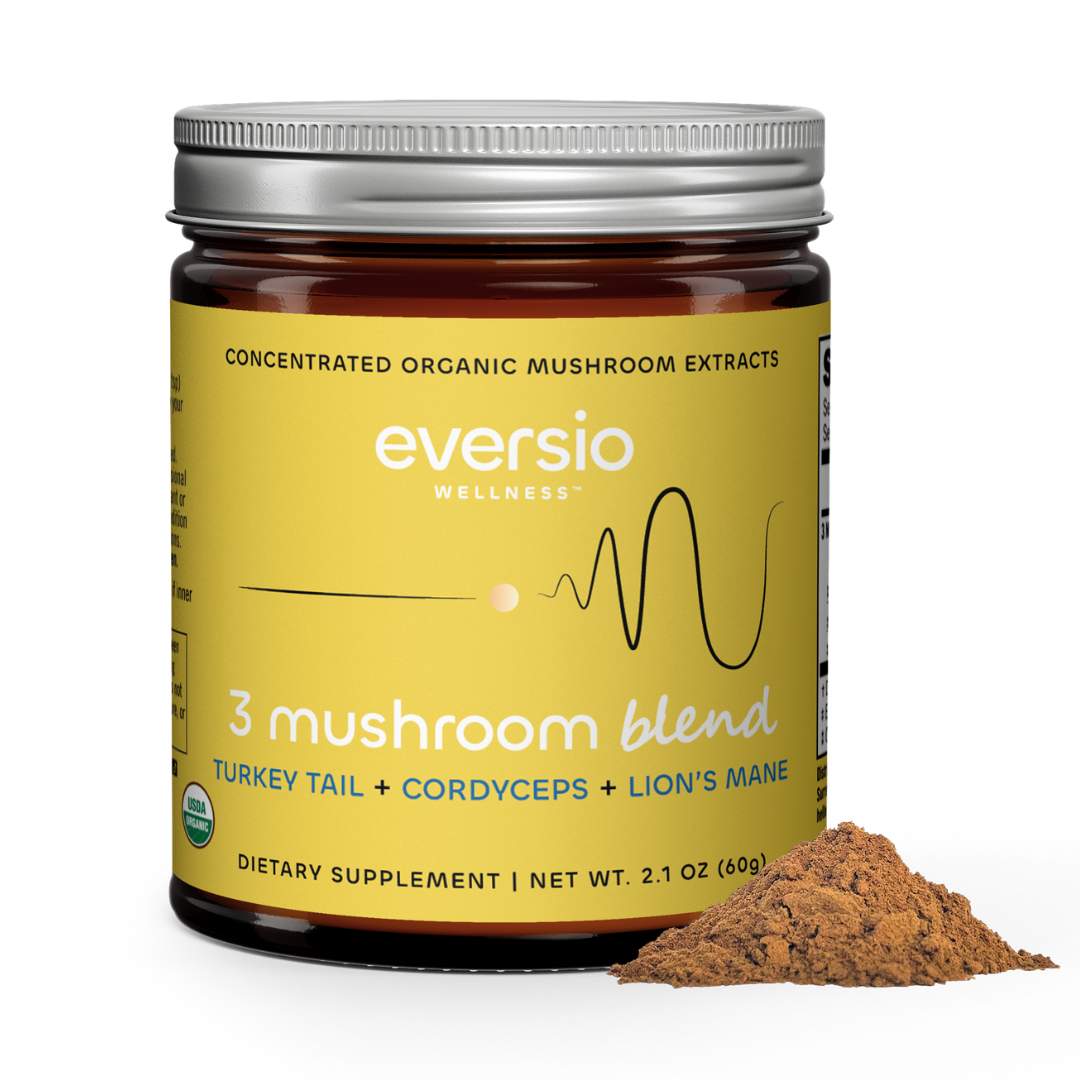
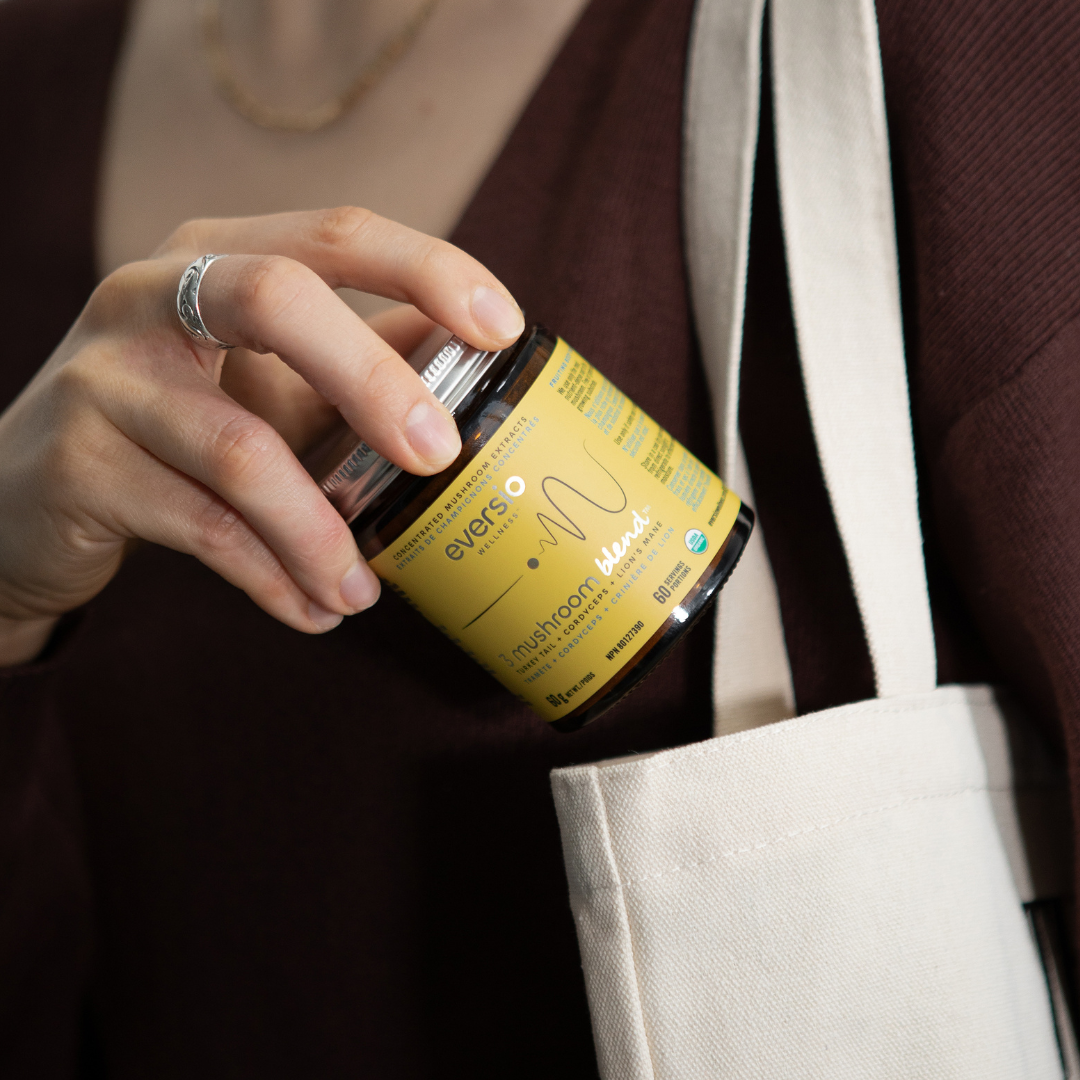

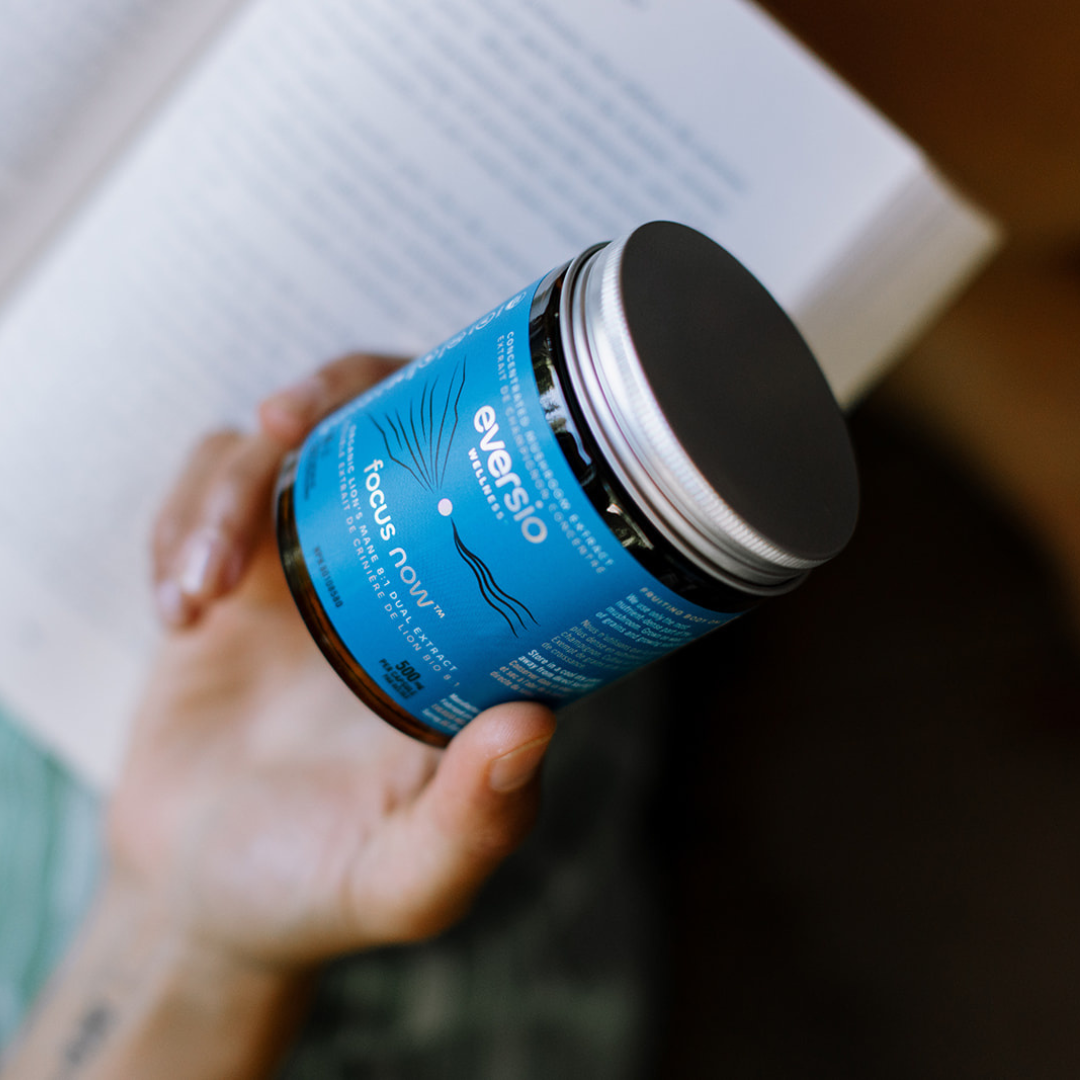
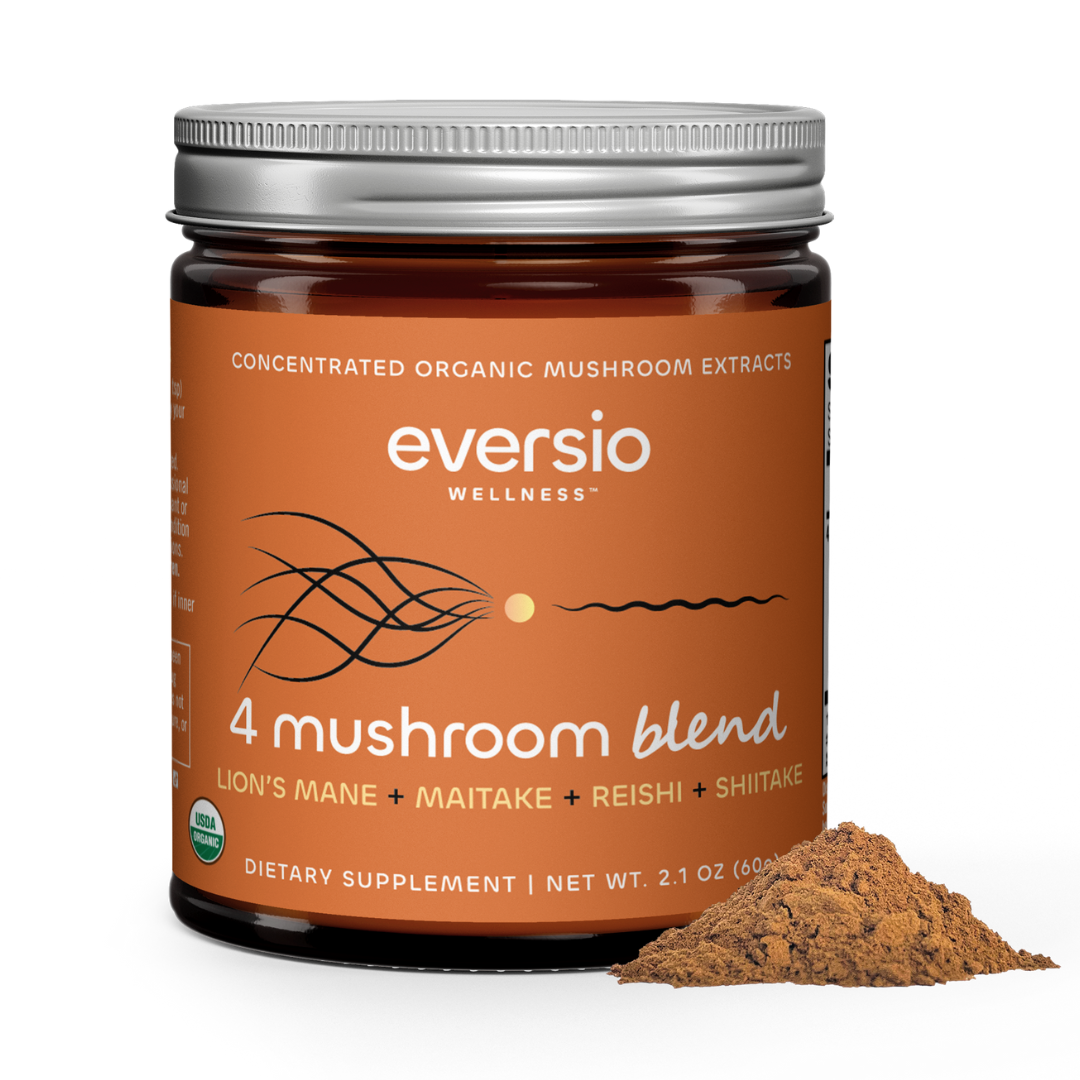


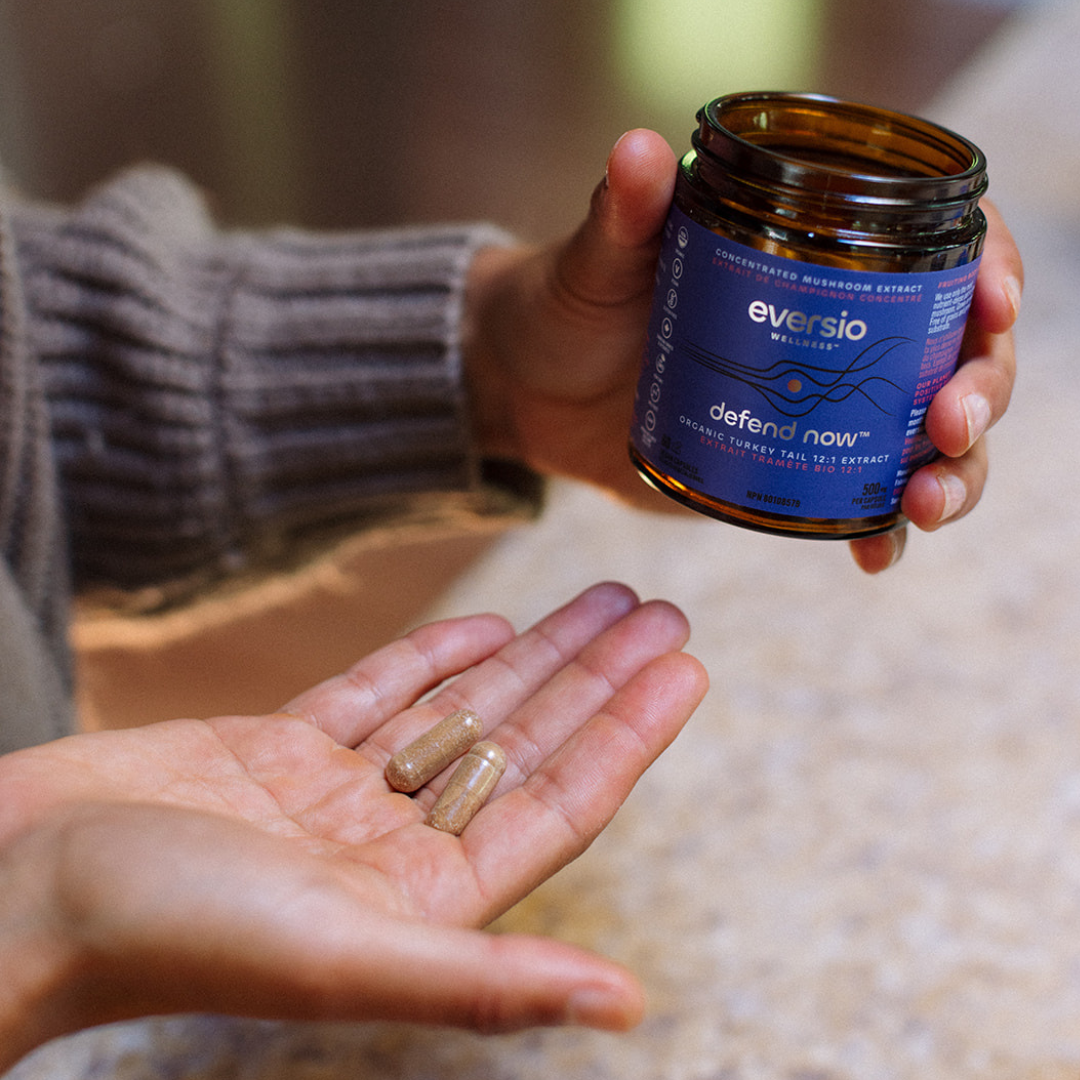
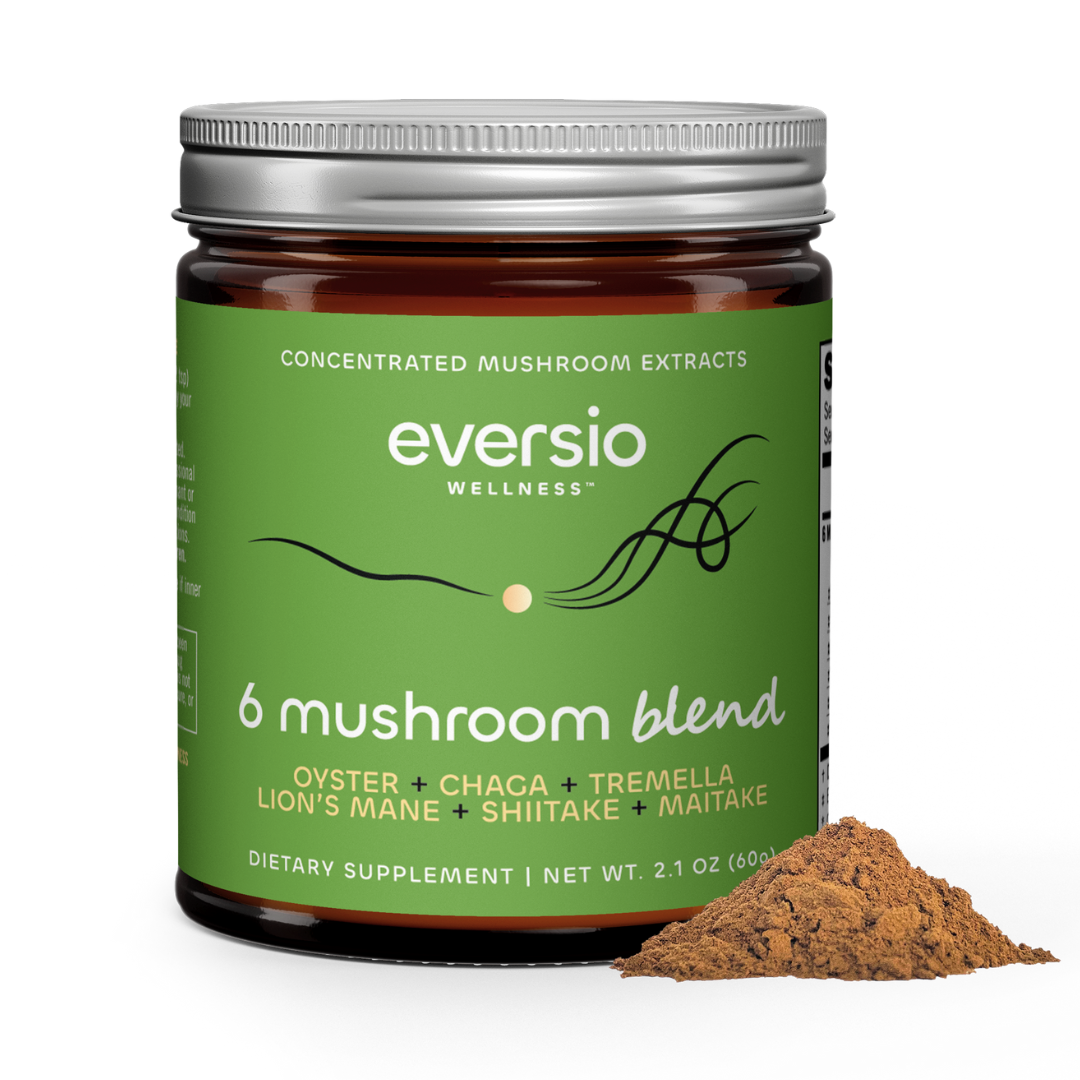
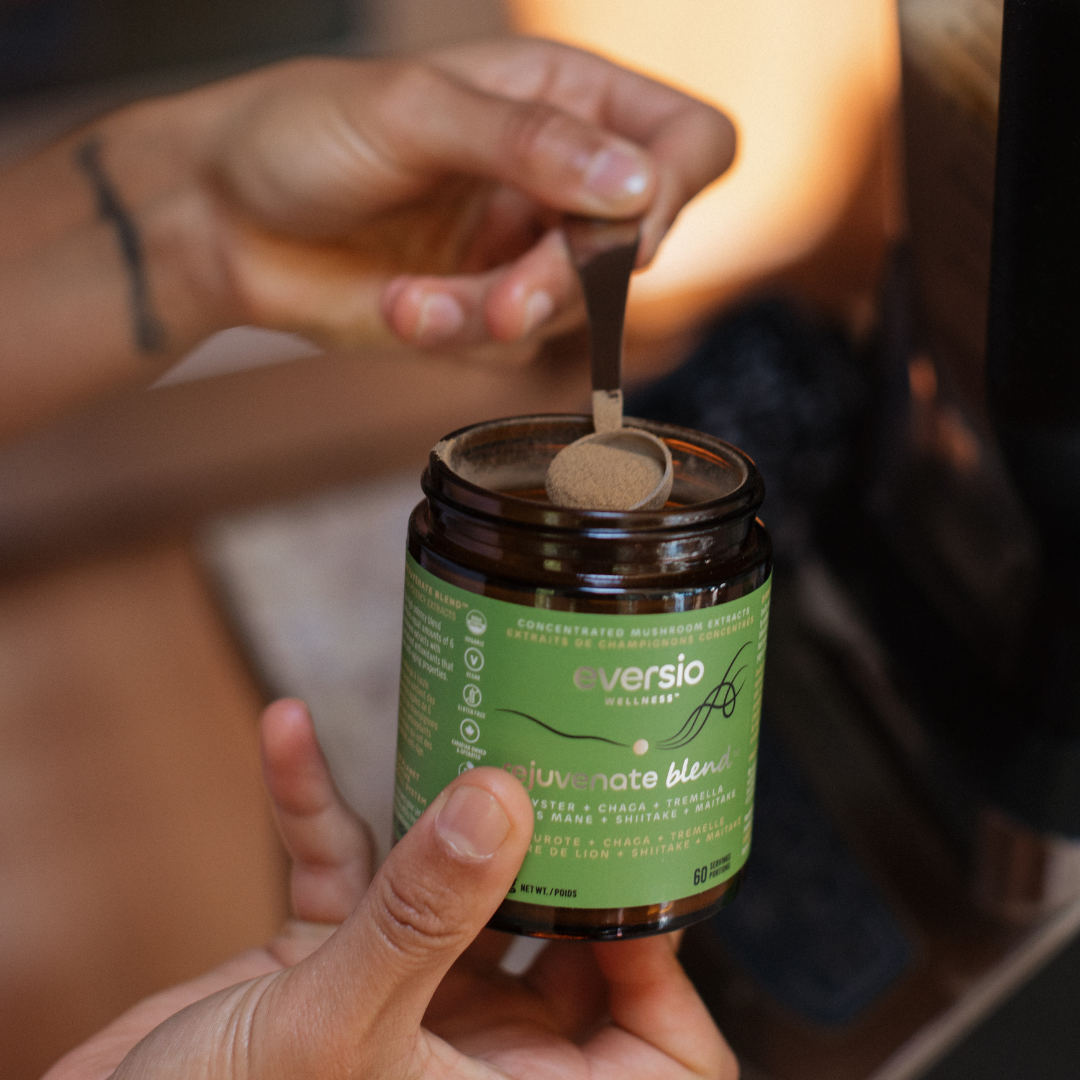
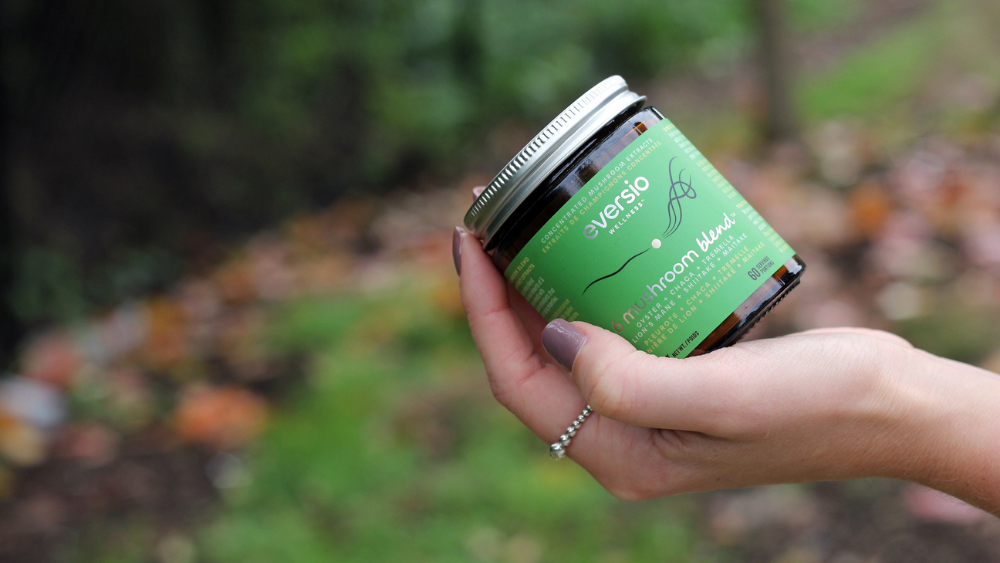







Leave a comment
All comments are moderated before being published.
This site is protected by hCaptcha and the hCaptcha Privacy Policy and Terms of Service apply.